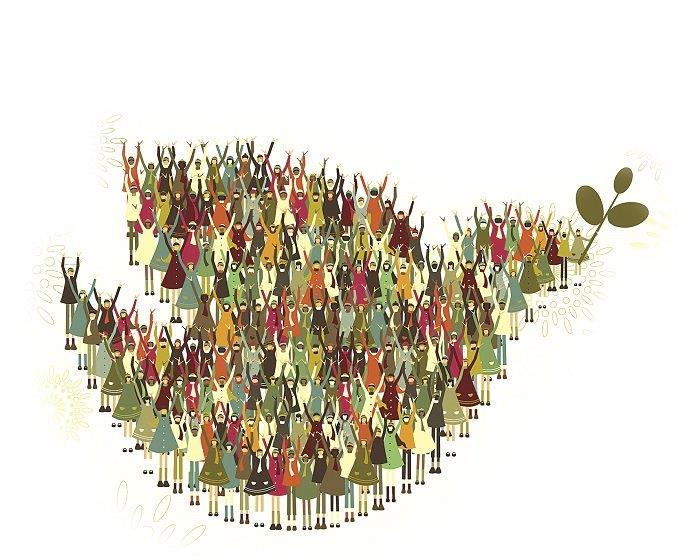Peace is a central concern of the Christian faith. The words of Jesus in the Sermon on the Mount are ones that have registered strongly in the minds of his followers ever since they were first expressed.
“Blessed are the peacemakers, for they will be called children of God” (Matthew 5:9).
Jesus’ disciples are to be active in seeking peace and reconciliation. Peacemaking is linked to other qualities such as righteousness and mercy (Matthew 5:6-7).
Peace is multifaceted. It involves not only peace with one another and peace in society, but also peace with God, inner peace and peace with creation itself. Theologically, the Christian faith holds that while we are “made in the image of God,” with amazing capacities, we are also sinful with a bias towards selfinterest at the expense of others. We were created for relationship with God and others, but so often misuse our God given freedom and gifts for selfish ends resulting in alienation, tension and conflict.
This is not just an individual matter, but is compounded when the interests of one’s group or nation override other considerations. The most glaring outcome of this is war and acts of terrorism. It is also evident in many other actions that make peaceful living impossible, such as unjust practices, domestic violence and the various forms of prejudice. Peace is not the absence of conflict, but rather having positive life enhancing relationships with God and others.
The Hebrew word for peace, ‘shalom’, has rich connotations. It involves peace, fulfilment, wholeness, wellbeing, community, justice, unity, harmony, health, security and prosperity.
Peace in Hebrew thinking necessarily holds together the spiritual and the material, the individual and the corporate, the human and the environment. The early followers of Jesus sought to live at peace with others and God.
Paul has various statements encouraging peace. To the Corinthian church he wrote, “It is to peace that God has called you” (1 Corinthians 7:15). To the church in Rome he said, “If it is possible, as far as it depends on you, live peaceably with all” (Romans 12:18) and “Let us then pursue what makes for peace and for mutual upbuilding” (Romans 14:19).
For the first 300 years, the stance the early Christians took in relation to the Roman Empire was essentially one of pacifism and non-violence. They were viewed with suspicion as they refused to give allegiance to the emperor saying, “Jesus is lord.”
The early Christians combined a simple obedience to the words of Jesus to love enemies and pray for persecutors (Matthew 5:44) with a genuine spirit of loving all people (Romans 12:9-21). When the Roman Emperor Constantine took on Christianity, unfortunately this emphasis on peace gave way to supporting the Empire and the just war theory was developed.
In our time the World Council of Churches (WCC) has put out an important statement, An Ecumenical Call to Just Peace (WCC, 2011). It emphasises the need for justice as the basis of peace. Churches today recognise that we need to work to achieve justice and use the methods of non-violence, rather than resort to violence and war. This is the way of Jesus, who rejected violence. We would do well to give peace and non-violence greater attention as we seek to live according to the way of Jesus in our context.
All disciples of Jesus are to be people of peace and peacemakers in the world seeking the wellbeing of all. We look to God’s fulfilled reign of love, justice and peace and, with the aid of God’s Spirit, work and pray for reconciliation, justice and peace in the present.
Rev Dr Chris Walker is currently in Perth to teach a course on Apologetics this semester at Murdoch University. Apologetics is the defence and recommendation of the Christian faith in the face of challenges to it. It aims to defend and offer the faith through reasoned argument to others and to strengthen those within the faith community. The unit is open to all interested people as a one-off study unit. Email Chris for more info at christopher.walker@murdoch.edu.au.
